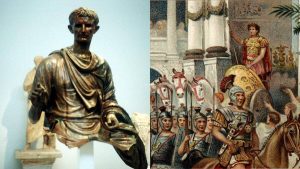Why The Paycheck Protection Program Is Full Of Fraud
The government made the Paycheck Protection Program funds too accessible to any business that expressed a need, but this led to rampant fraud as companies that didn't actually need the money were still granted funds.
This article is more than 2 years old

The beginning of the pandemic was an increasingly stressful and terrifying time for small business owners and their employees as everyone wondered how they would be able to pay their staff when their revenues dropped to nearly zero dollars. When all the shutdowns occurred, the Federal Government enacted the Paycheck Protection Program which was focused on getting small businesses across the country the funds needed for them to maintain their employees on their payroll to stem the tide of massive unemployment. Unfortunately, the speed of the enactment of this program left the door wide open for a massive amount of fraud perpetrated by thousands of companies and individuals.
Most small businesses are running on a month-to-month basis and are not sitting on a windfall of liquid capital to burn through if things get rocky with their revenue streams. If all those small businesses laid off their staff at a time when people would not be able to seek other means of employment would have caused a catastrophic human disaster never seen before. To combat this potential disaster, the Trump administration and both houses of Congress came up with the Paycheck Protection Program also known as PPP in the spring of 2020.
According to NPR, “Government officials acknowledge that the program was rife with fraud and did not weed out undeserving applicants. But there was a way to remedy those early errors: Deny forgiveness. That could have thwarted scam artists and forced businesses that prospered to repay the money.” However, Congress instead went ahead and enacted the Paycheck Protection Program Flexibility Act which loosened the requirements for businesses to gain forgiveness for their loans. In other words, without having to provide any documentation, businesses just needed to attest to the fact that they used the funds to stay in business, and then their debt would be forgiven.
Corporations lobbied constituents in Congress to make the forgiveness rules as relaxed as possible which allowed major corporations that did not need the assistance funds to be able to collect loan proceeds. This wound up being an additional revenue source for those companies.
Essentially, the one way for the government to have stemmed the amount of fraud by making companies that didn’t need it to pay it back was completely wiped away which turned the whole program into a free for all. That was an $800 million grab bag of money that corporations and big businesses feasted on and left the small business owners whom the money was supposed to assist out in the cold.
A high-profile example of that was Professional Football’s All-Time Great Quarterback Tom Brady’s Health and Nutrition company TB12 who received a $960,000 Paycheck Protection Program loan. In 2021 Tom purchased a six-million-dollar yacht, so it is easy to draw the conclusion that Tom’s company would not have failed because of the pandemic, but he still received almost a million dollars. And even though this high-profile case was all over mainstream media, his loan was fully forgiven which just goes to show you how easy it was to not only obtain the loan but how easy it was to get it forgiven.
Unless that is if you were an individual small business owner that couldn’t get approved by the big financial institutions and had to use a fintech like Kabbage, or Square to get your loan. Most of the rare loans that were not forgiven come from these types of situations, which is a shame since that was the group that the government set out to help to begin with. Now they are dealing with giving mountains of their time having to deal with these loans and try to get answers all while being the only person running their businesses.
The main disappointment was people were supposed to be able to self-select whether they truly needed these loans and the one thing we know for sure now is that some people’s greed for money was much greater than their common sense of their business’s needs for those funds. The unfortunate part is that because of all the confusion and changing rules around these Paycheck Protection Program loans, most of these greedy fraudsters are going to get away scoff-free. But our children and grandchildren will pay the price tag through future taxes and decreased public services due to the massive amount of debt the government piled onto our already huge debt, and that is unfortunate.






